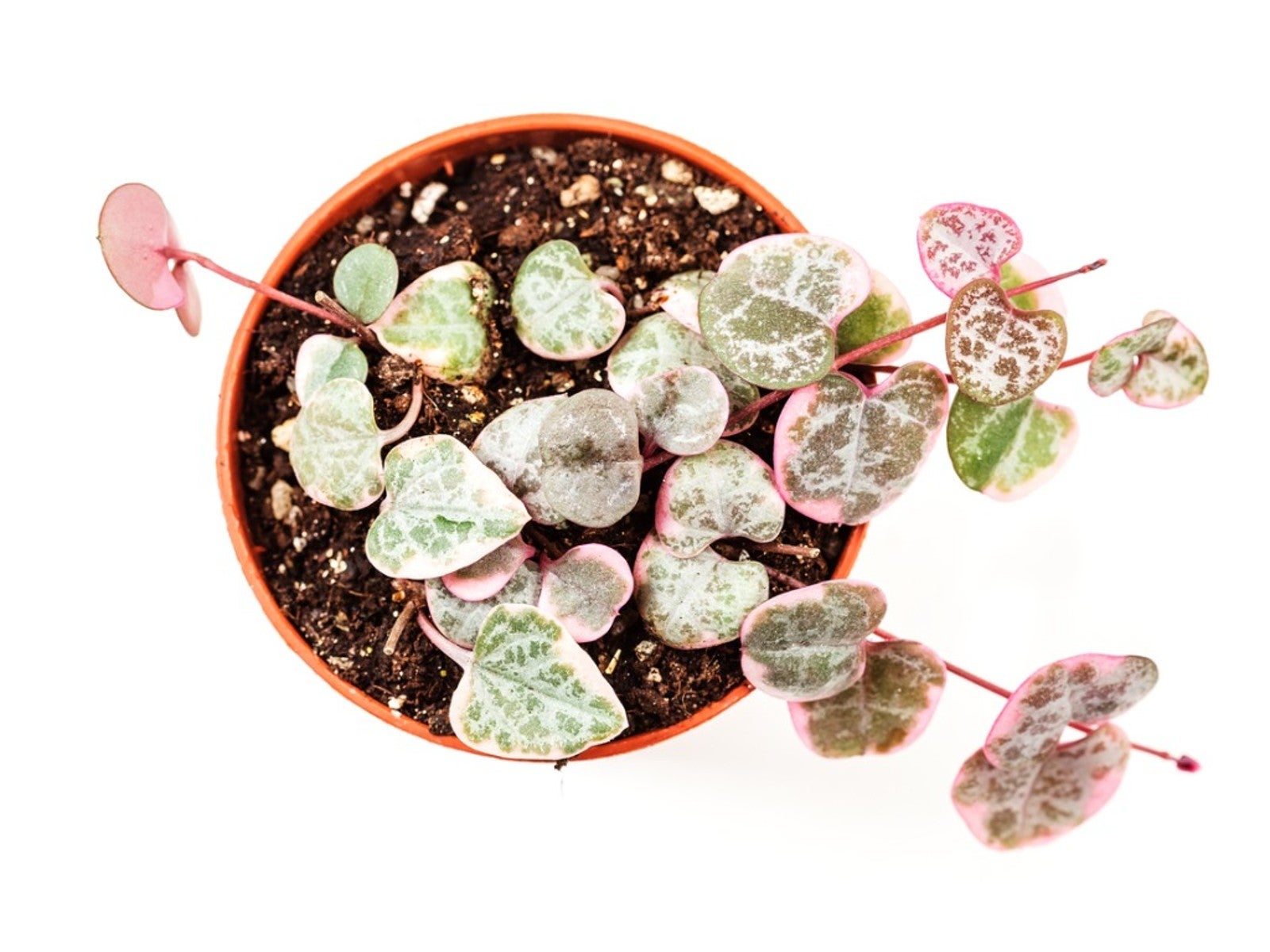How To Grow A Variegated String Of Hearts Plant


Variegated String of Hearts (Ceropegia woodii variegata) make adorable houseplants that are ideally suited for hanging baskets. This variety of rosary vine has marbled green and silver leaves edged with creamy white and undertones of pink. The rosy colored, heart-shaped leaves make this vining plant the perfect gift to say, “I love you.”
What is Variegated String of Hearts
Much like other types of String of Hearts, variegated cultivars have small, delicate leaves. These grow opposite each other on a trailing, purplish colored stem. The spacing between the sets of leaves is dependent upon the light, with brighter indirect light creating shorter internodes.
C. woodii is a tender perennial which hails from southern Africa. It can be grown outdoors in USDA zones 9 through 11 and is most often cultivated as a houseplant elsewhere. Houseplants can be moved outside into a shady or dappled sun location for the summer but will need to be acclimated to the change.
In addition to the names “String of Hearts” and “Rosary vine,” this popular plant has several other common names including Chain of Hearts, Collar of Hearts, and Hearts Entangled (because the stems become tangled). They are also called Lantern Flowers due to the distinctive shape of the blossoms.
Variegated String of Hearts blooms most often in the summer. The 1 inch (2.5 cm.), pinkish purple flowers have a lantern shape, hence the common name. The petals are fused at the tips and form a cage which temporarily traps the flies which come to pollinate these flowers.
Caring for a Pink String of Hearts Plant
Variegated String of Hearts plants are as easy to care for as they are pretty. As a succulent-like plant, they prefer a drier growing medium and don't tolerate soggy soil or overwatering. The general rule of thumb is to water only when the top surface of the soil is dry.
A cactus soil mix works well for these houseplants and naturally, good drainage is a must. Choose a pot with adequate drainage holes or cut additional holes in the bottom of the planter with a knife.
Sign up for the Gardening Know How newsletter today and receive a free copy of our e-book "How to Grow Delicious Tomatoes".
Sting of Hearts plants don't require frequent fertilizing. Once monthly, with a half-strength formula of houseplant food, is sufficient. Allow a pink string of hearts plant to rest during the winter by reducing water and skipping the fertilizer until spring.
Variegated String of Hearts will sometimes produce underground tubers. This can make the roots a bit snug in their pots. As this species continues to thrive when rootbound, don't rush to repot them. Once every two to three years is sufficient. When repotting, choose a new planter which is only slightly larger.
This species also produces aerial tubers along their stems. These tubers can be pressed into the soil of a different pot to produce new plants. Once the new plant has rooted, sever the stem between the pots. Variegated String of Hearts can also be propagated from stem cuttings or grown from seeds.
The stems of the Variegated Rosary vine can be trained to climb a trellis or topiary, but this houseplant is most often used in hanging baskets. The stems will trail over the edge of the pot and grow downward.
In the house, the stems don't often reach more than 2 feet (61 cm.) in length. Outdoors, the vines are capable of growing 10 to 12 feet (3-4 m.) long. If necessary, the stems can be trimmed to control their length. (The cuttings can be rooted in the parent pot to create a fuller plant.)
This houseplant is considered non-toxic to humans and pets. Thus, there is no harm in letting it dangle down to the floor, crawl along a shelf, or decoratively trail across the top of a China cabinet.

Laura Miller has been gardening all her life. Holding a degree in Biology, Nutrition, and Agriculture, Laura's area of expertise is vegetables, herbs, and all things edible. She lives in Ohio.